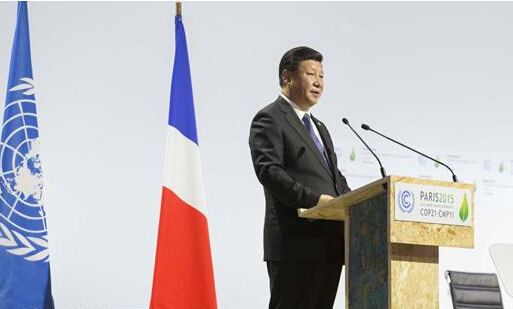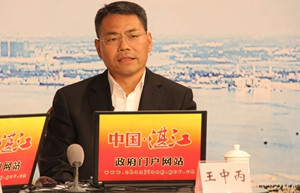China's green commitment needs support from other countries
By Wang Mingjie ( China Daily Europe ) Updated: 2016-01-22 18:59:11
 |
|
President Xi Jinping attended the opening of Paris Climate Change Conference and delivered and important speech on Nov. 30,2015. [Photo/Xinhua] |
China's commitment to building green generating capacity is real but it needs the support of technologically mature economies to make sure that it invests in the right projects and that the most advanced solutions are rolled out, a leading UK industrial expert says.
"There are too many examples where compromise solutions have been implemented which don't provide the necessary plant life or environmental benefit because quality standards are too low or previous generation technology has been used," says Chris Rudd, professor of mechanical engineering at the University of Nottingham.
Rudd adds the situation is improving, but due to the scale of China's demand, any mistakes can be huge expensive and time-consuming to rectify.
China's state-owned enterprises are facing a major challenge in reinventing themselves to support China's ecological endeavours and its new role in the world economy.
A recent Beijing Youth Daily report shows that about 21 percent of the country's listed SOEs register losses in the first three quarters, with the worst ten losing a total of about 13.5 billion yuan ($2.1 billion, 1.38 billion pounds, 1.91 billion euros).
In order to enhance productivity and to further eliminate outdated procurement and management practices, Rudd suggests the pace of change will need to accelerate.
"No single measure will rescue this major part of the national infrastructure but a combination of mixed ownership, management changes, business spinoffs and overseas partnerships will help to refresh the portfolio and enhance their readiness to embrace change, new technologies and market responsiveness," Rudd says.
As major providers and consumers of energy and other natural resources, Rudd believes the SOEs are critical in delivering a green future, and accelerating reform in the sector is of paramount importance.
"It should also be borne in mind that these are huge employers in China, both directly and via their supply chains - safeguarding a major segment of the Chinese labour market is a further consideration that makes their upgrading and longevity a top national priority," adds Rudd.
Europe and UK in particular have a thriving green-tech industry and there is already a strong collaboration platform with China, based on both technology developments in R&D partnerships, manufacturing facilities and design services,
"The availability of private and sovereign capital in China means that win-win partnerships can be formed, with investment into capital-starved overseas businesses and projects while western technology can be deployed economically in China's huge domestic market," says Rudd, adds there are great examples of this with UK's next-generation green energy projects in Nuclear and Tidal Power schemes.
During the Paris climate summit, President Xi Jinping pledged to reduce CO2 per unit of GDP by 60-65% over the 2005 level, and raise the share of non-fossil fuels in primary energy consumption to about 20% by 2030.
Xi said China will adopt new policy measures to improve industrial mix, build low-carbon energy systems, and develop green building and low-carbon transportation on the basis of technological and institutional innovation.
As a direct result, innovation and green development have been put forward as two of China's major themes in its 13th Five Year Plan proposal. China's re-focus on its development strategy brings about great potential opportunities to the UK and European businesses.
The UK has particular strengths in engineering and design consultancy, and it has outstanding R&D capabilities, which will be relevant as China upgrades the energy efficiency of its buildings and implements ‘smart city' concepts for the future, says Neil Hirst, Senior Policy Fellow for Climate Change and the Environment at Grantham Institute, Imperial College London.
"Imperial College, where I work, collaborates with many Chinese research institutions and trains many Chinese students in science and technology," Hirst adds.
Hirst believes that the scale of China's adaptation to a lower carbon future will certainly offer widespread opportunities to businesses in the UK and in Europe, which are following the same route.
China is now the world's largest manufacturer of photovoltaic modules and of wind turbines, says Hirst, adding in some areas it has the most advanced technology but there are also many technologies where Europe is at the cutting edge.
"There will be major opportunities in renewables, including wind and solar, but also in the modernisation, including efficiency improvements, of a wide range of manufacturing industries, and conventional power plant," Hirst adds.
To contact the reporter: [email protected]
- China welcomes Paris climate change agreement
- China stands as constructive player in global fight against climate change
- Low-emission Africa urges developed nations to help tackle climate change
- China has made tangible contribution to progress in addressing climate change
- Xi Jinping expressed China's plan on Paris Climate Change Conference to contribute China's wisdom to global environmental governance
|
|
|
|
|
|
|
|
Features
 Merkel's lighthearted moments in China
Merkel's lighthearted moments in China  British pub becomes tourist attraction after Xi's visit
British pub becomes tourist attraction after Xi's visit
European Weekly
 We will not give up search, Li vows
We will not give up search, Li vows
International hunt for missing airliner continues after fruitless six-day search




















